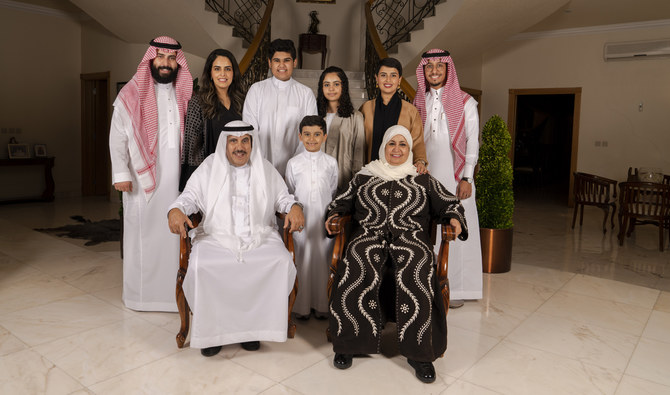Norah Al-Faiz: I believed in the powerful influence of early childhood education on one’s personal, social and professional life.
I was born in Shagra in 1954 at a time when education was still in its infancy in Saudi Arabia. As the first child of 10 — six boys and four girls — I was privileged be given my parent’s attention and care, as they were eager to instill cultural and moral values in their children along with encouraging them to learn and progress in education.
Growing up between Riyadh and the Eastern Province, I finished my early education in public schools, studied sociology at King Saud University in Riyadh in the mid-1970’s, and graduated in 1978 whilst pregnant with my first child.
University education for women back then did not require a lot of attendance at lectures, which did not match my ambitions for a busy life. I therefore found myself a job as a school controller at an intermediate school in Riyadh.
During my early journey through motherhood, my husband received a scholarship to the US, and although I was just beginning my professional life in education I decided to leave my job and move.
I was still eager to pursue my higher education, so I immediately enrolled in an English language institute before starting my master’s degree at Utah State University where I studied instructional technology at the education department. Choosing this particular subject of study was a well-thought-out decision. At that time, 99.9 percent of job opportunities for women were in education, and I knew this major was needed in my country. And above all, education is my passion.
Managing my family duties and studies was a unique experience as I was pregnant with my second child when graduating from my master’s. I stayed focused and decided to pursue my specialist degree right after.
Returning to the Kingdom in 1983, I was privileged to have my professional life prosper. I first joined the Institute of Public Administration as a manager and instructor; it had just opened its branch for female students. Between 1984 and 1988, I contributed in training women, preparing them for the labor market.
With the help of my colleagues, we established the Education Technology Center at the Ministry of Education which focused particularly on the development of employees in the education sector.
After that I was invited to work as a supervisor for the Special Needs Center, but it was not challenging enough to keep me fully occupied, so I worked as a part time professor at King Saud University before returning to the Institute of Public Administration as the general director of the women’s branch.
In 2009, I was honored and privileged to be the first Saudi woman to be appointed to the position of vice-minister of education, an honor bestowed on me by the late King Abdullah. The news was warmly and happily welcomed by my loved ones and I was honored to receive that trust.
I was also determined from my first day in office to support, initiate and adopt projects and programs that would have a positive impact on the professional career pathway of Saudi women, particularly in education.
During my time in office between 2009 and 2015, I succeeded with my team in providing important leadership opportunities for women at the ministry along with improving working conditions and student learning outcomes.
The seven key domains that I have primarily focused on supporting were professional career pathways for women, early childhood education, support for female students, the development of special education, adult education programs, supporting private education and complementary educational projects.
Another important step I am proud of is permitting private schools to have female teachers, and letting them teach male students in primary grades. It was important not only from an educational perspective but also to create more job opportunities for women. Although I received huge opposition, it did not stop me from my goal to improve the education sector. Even after I left the ministry, I never stopped serving my country. It is in my blood.
None of my achievements have ever been an individual effort: I worked with an amazing team to help to improve the education system, and I am certainly proud of the outcome.
I received the Distinguished Arab Women Award in Education from the Arab Women Foundation in 2011, as well as the first prize at the 20th Global Summit for Countries Best Practices to Broaden Women Employability at the MOE in China in 2010. My alma mater, Utah State University, tracked my work and granted me an honorary doctorate in 2012 for my support of women’s and early childhood education.
As a proud mother of five — three boys and two girls — as well as four grandchildren, my husband Sulaiman Al-Solai and I focused on raising our family to be independent and open to the world. Education was important in my household but I don’t believe in pressuring children to pursue anything other than what they want to pursue. I believe in striking a balance for children excelling in their educational fields, and their personal growth is key to happy, successful lives.
















